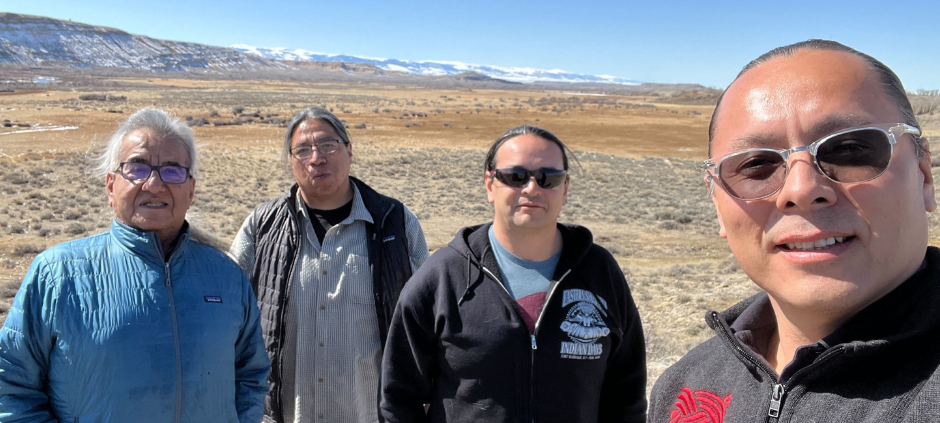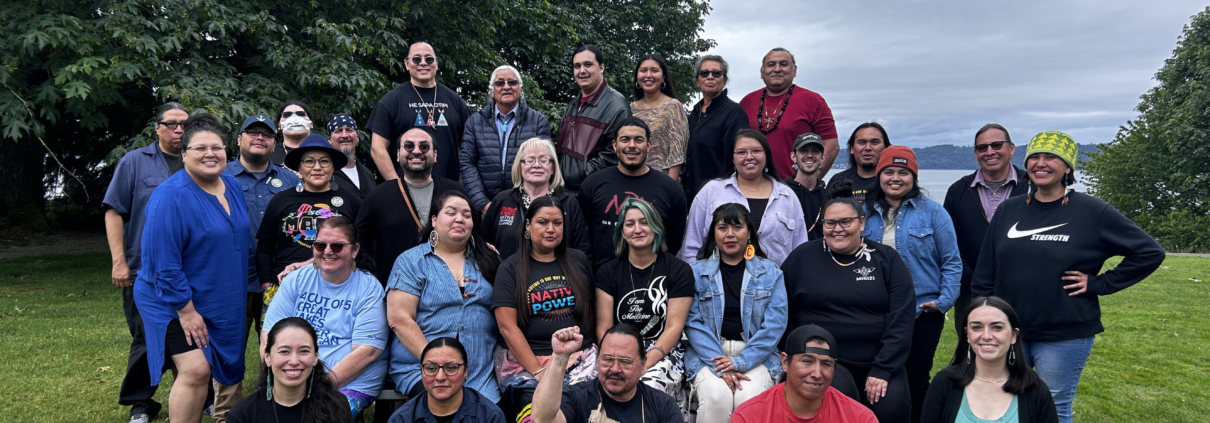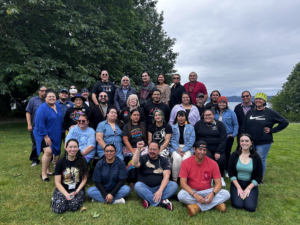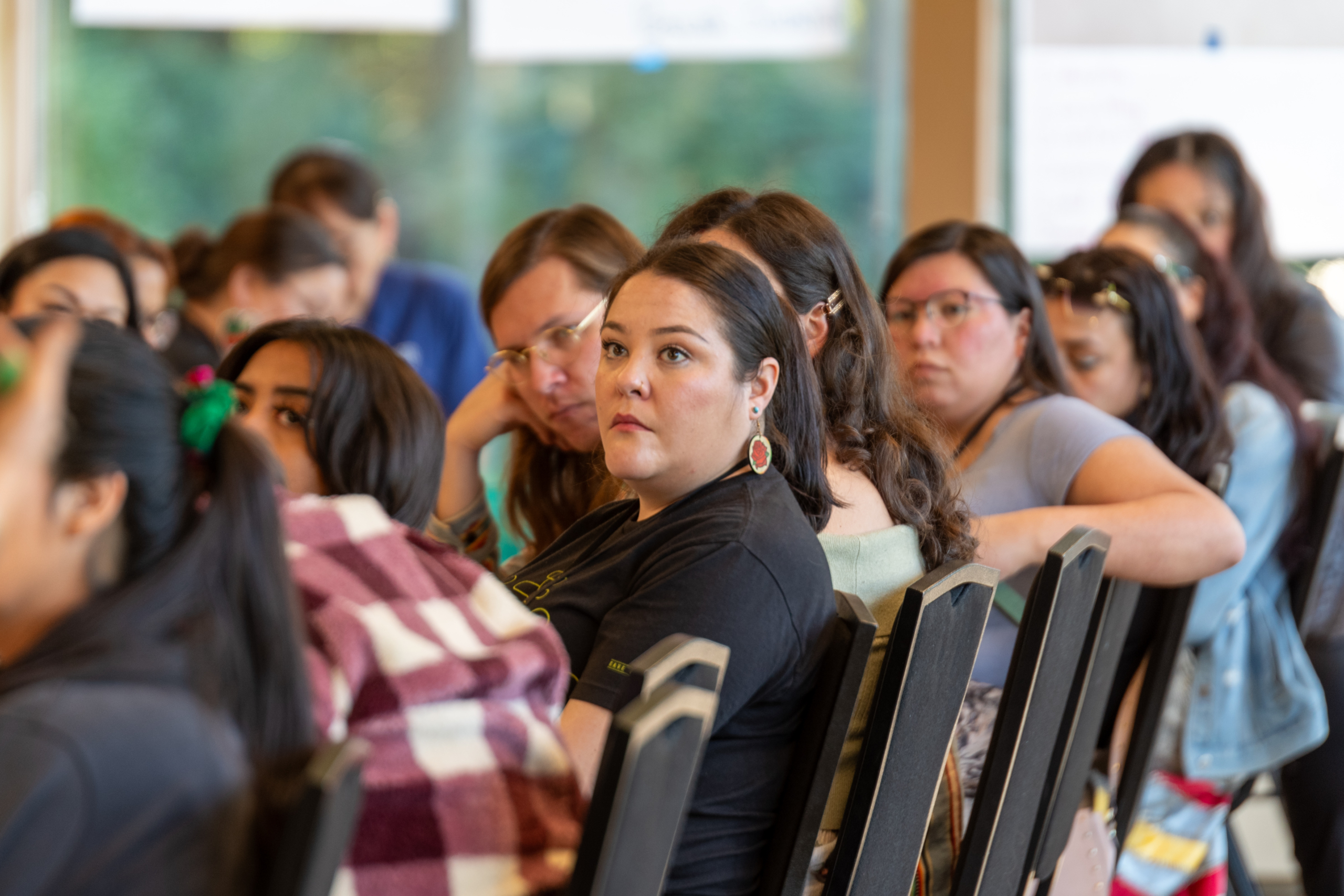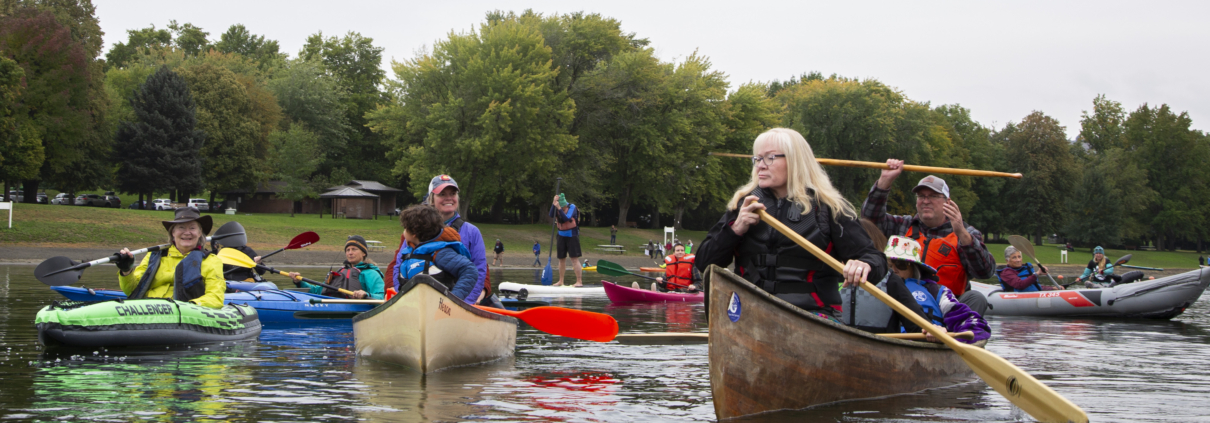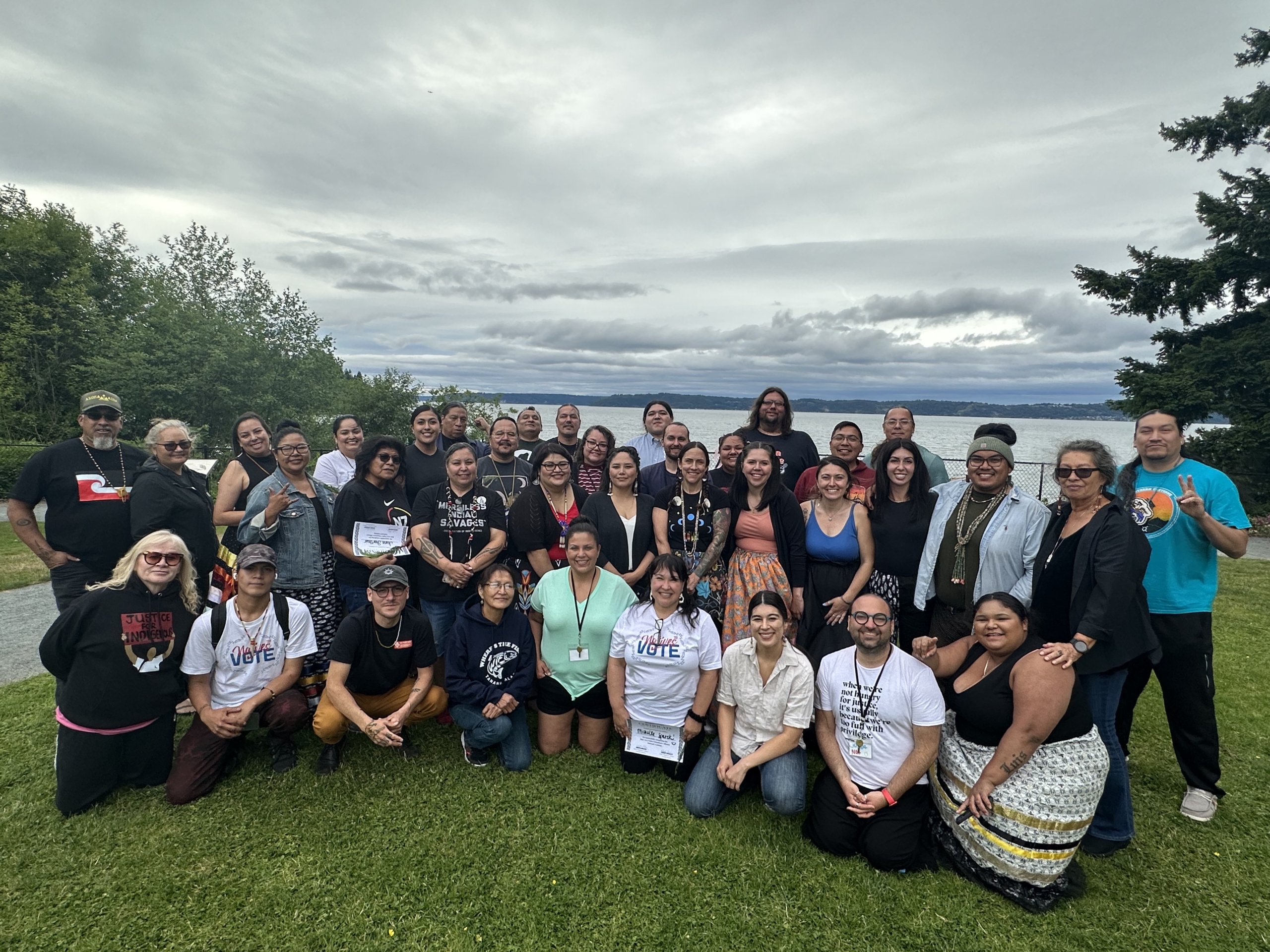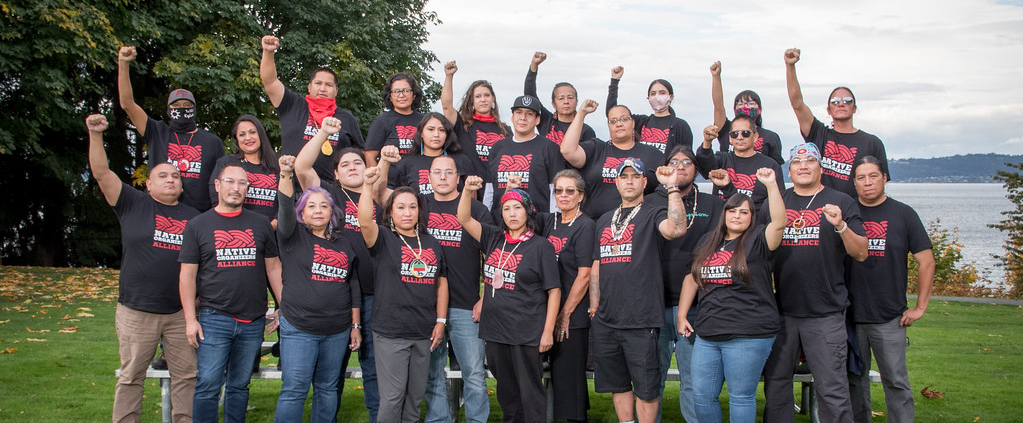Download our 2023 Annual Report here.
It’s a new year! And while we are preparing for the upcoming events of 2024, we also know it is important to reflect on the various accomplishments of the previous 365 days.
While so much of our organizing includes on-the-ground trainings, email campaigns, and education, Native Organizers Alliance was included in 26 panels, webinars, podcasts, and interviews.
Here’s a look at just some of the projects we were involved in throughout 2023:
 Training Program
Training Program
Our Native Community Organizer Training is for Native leaders, nonprofits, and organizations both in rural and urban communities. During these in-person sessions, we share new skills and strategies that are vital for effective organizing.
In 2023, we held 1 National and 7 State-Based or Regional Trainings for a total of 245 total training participants.
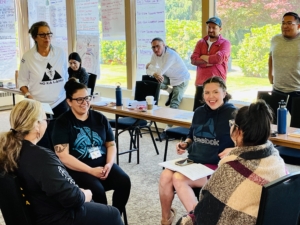
Save Oak Flat
In Spring 2023, we were notified of a Trump-era deal, which would hand over Oak Flat in Arizona to a notoriously devastating mining corporation. We organized an email campaign that supported the San Carlos Apache and Apache Stronghold, who are on the ground and working towards permanent protections for Oak Flat. Thankfully, the Biden administration listened, pushing that approval.
The constant attack on Oak Flat is why we also have shown support for Rep. Raúl Grijalva’s Save Oak Flat from Foreign Mining Act. Let’s keep up the fight to protect Oak Flat for future generations!
Re-Indigenizing National Parks
At Native Organizers Alliance, we’re working with Tribes, Native communities, and grassroots organizers across the country to grow the movement to re-Indigenize and protect national parks. In 2023, we used social media and our email list to push for co-management legislation as well as programs that would teach the Indigenous histories of the land where these parks exist.
We also organized a letter program to President Biden to establish a new national monument to protect the Grand Canyon. Tribal leaders and organizers were able to celebrate the years of work put towards this designation when the White House announced Baaj Nwaavjo I’tah Kukveni:
“Ancestral Footprints of the Grand Canyon National Monument will conserve nearly 1 million acres of public lands surrounding Grand Canyon National Park. The new monument protects thousands of cultural and sacred sites that are precious to Tribal Nations in the Southwest – including the Havasupai Tribe, Hopi Tribe, Hualapai Tribe, Kaibab Band of Paiute Indians, Las Vegas Paiute Tribe, Moapa Band of Paiutes, Paiute Indian Tribe of Utah, Navajo Nation, San Juan Southern Paiute Tribe, Yavapai-Apache Nation, Pueblo of Zuni, and the Colorado River Indian Tribes.”
The White House on August 8, 2023
Honoring Chaco Initiative
Many of our partners are fighting to protect Greater Chaco Canyon in New Mexico, a sacred place with deep cultural significance for Indigenous people. While steps have been taken to protect certain areas of Greater Chaco from industrial exploitation, more needs to be done to truly safeguard the safety and well-being of this cultural landscape and surrounding communities. We will continue to uplift this need and support The Honoring Chaco Initiative.
This legislation is a first-of-its-kind effort to change the paradigm of public lands management in this sacred landscape and finally prioritize the health, economic, and environmental justice, equity, and sustainability of the region.
All Our Relations Snake River Journey
Native Organizers Alliance was honored to be a part of the Indigenous-led 2023 All Our Relations Snake River Journey. Traveling through Washington, Oregon, and Idaho in September and October the campaign set out to build community and demonstrate the momentum of public support for restoring salmon to abundance and upholding treaty promises to Northwest Tribes.
Read more about our time on the journey here.
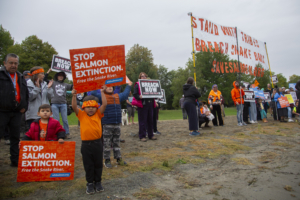
Free Leonard Peltier
Leonard Peltier is the longest-incarcerated political prisoner in our country. The fight for Leonard Peltier’s freedom continues to this day. In the fall, we brought together a coalition of organizations to bring renewed pressure on the Biden Administration to act.
We rallied for support via a petition with 70,000+ names that was then delivered to the White House by Congressman Raúl Grijalva.
Indigenous Futures Survey
The Indigenous Futures Survey is an annual survey that aims to capture Indigenous people’s voices, perspectives, and concerns for use in developing policy, understanding socio-economic trends, and highlighting important issues impacting Indian Country.
This information will help inform Tribal leaders and members of Congress about issues facing Indigenous People and inform so much for the upcoming Native Vote 2024.
The success of this year’s IFS is only possible because of the 10 fellows who worked in their communities with local organizations. Each fellow is part of our ‘moccasins on the ground’ approach and their work is important in the continued community and power building that makes grassroots organizing possible.
This year’s survey is co-led by IllumiNative and Native Organizers Alliance, with Kauffman and Associates, Inc. supporting the survey development and analysis.
DAPL and the Draft Environmental Impact Statement
After many years of delays and a fatally flawed Draft Environmental Impact Statement (DEIS) written by a member of the American Petroleum Institute — a clear conflict of interest — the Army Corps of Engineers finally took public comments on this dangerous violation of the sovereignty of the Standing Rock Sioux Tribe.
Through our channels, we were able to submit over 101,000 comments on this DEIS. The fight against DAPL might have begun in 2016 but we will continue to stand in support of Tribal sovereignty until this pipeline is no longer a threat to the area.


